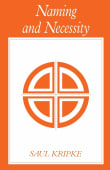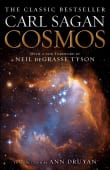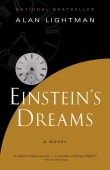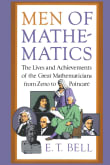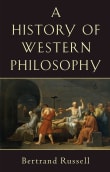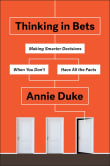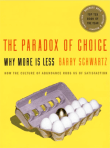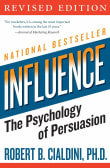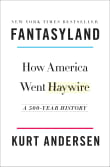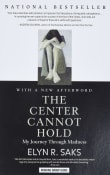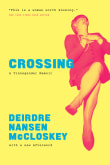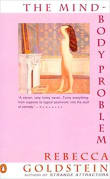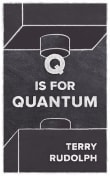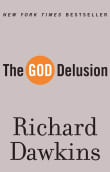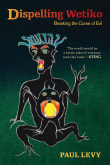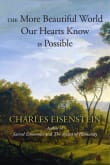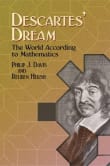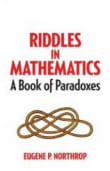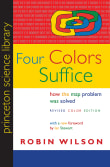Gödel, Escher, Bach
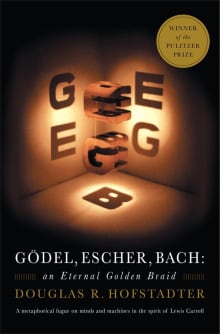
Book description
Douglas Hofstadter's book is concerned directly with the nature of maps" or links between formal systems. However, according to Hofstadter, the formal system that underlies all mental activity transcends the system that supports it. If life can grow out of the formal chemical substrate of the cell, if consciousness can…
- Coming soon!
Why read it?
15 authors picked Gödel, Escher, Bach as one of their favorite books. Why do they recommend it?

Every "computer person" should read GEB at least once. Preferably in high school, when you still have the free time to dive deep into all the recreational math exercises. If you're already working 40-hour weeks and wonder who has time for Hofstadter's 750-page "metaphorical fugue on minds and machines," all I can say is: Better late than never!
From Arthur's list on budding C plus plus software engineer.

This book profoundly influenced my thinking process, combining the worlds of mathematics, art, and music. I was captivated by how the book explores the deep connections between Gödel’s incompleteness theorems, Escher’s art, and Bach’s art of counterpoint.
The book’s puzzles and thought experiments pushed me to think more abstractly and critically. Despite being dense, I found it incredibly rewarding and eye-opening. I recommend this book to anyone interested in logic, creativity, and the nature of human thought. It’s a masterpiece!
From Yehonathan's list on become a great developer.

This book picks up where Evening in the Palace of Reason leaves off, with Bach composing the Musical Offering on a horrible theme from King Frederick.
It explains canons and fugues, and thus helps you understand Bach’s work better, but it then goes on a safari through the intellectual landscape of ideas related to fugues–strange loops, self-similarity, recursion, and of course the guys in the title. It’s not for everyone, but if you like any two of logic, philosophy, or music, give this a try.
From Dan's list on Bach, music, and the piano.
If you love Gödel, Escher, Bach...

If one of five spots in my luggage for the hypothetical travel to a lonesome island is reserved for Miedaner’s masterpiece, then the second spot would be taken by Hofstadter’s timeless magnum opus Gödel, Escher, Bach.
I admire the author for his ingenious and unique way of exploring concepts fundamental to mathematics, symmetry, and intelligence by identifying common themes in the lives and works of logician Kurt Gödel, artist M.C. Escher, and composer Johann Sebastian Bach. Even though the book was written more than 40 years ago, it is path-breaking and fully up to date.
I derived very valuable lessons…
From Christian's list on making sense of the I in AI.

Entropy. The Uncertainty Principle. Schrodinger’s Cat. Such examples of the aligning of mathematical and verbal paradoxes rise to a wholly new level under the wings of Doug Hofstadter.
In this great classic, the incomplete math of Gödel twirls across the contradictions of Zen philosophy and the nucleotides of DNA, falling into the mesmerizing art of Escher and Magritte and then landing on the thematic acrobatics of Bach (one of whose melodies spells “BACH”). If you have any geek inside, you will be obsessed.
From Craig's list on history that will wake you up.

This book explains fundamental concepts of recursion, symmetry, intelligence, focusing on math, art, and music.
It’s full of wonderful tales, amazing facts, little-talked-about relationships among math, art, and music (and by reference computing), not to mention puns and amusing language. If you want to become a better person, this is a good book to read. If you want to understand and succeed in life, ditto.
If you let this book lift your mind to its space and height, you will find yourself vastly more capable of creating and understanding software. It’s a wonderful companion to the Ernest Nagel book I’ve…
From David's list on teaching and inspiring the best programmers.
If you love Douglas R. Hofstadter...

This book is a legendary piece of writing, utterly unique in the history of literature.
As a child, I read this and was fascinated by the raw intellectual power of Hofstadter’s ideas, alongside the spirit of playfulness the book encourages. Back then, I did not understand the book well, but as many friends have told me—you will read the book many times in your life and be amazed by its rich multidisciplinary ideas.
No matter how deeply you understand the book on first reading, this book will be an inspiration for life.
From Mark's list on mind bending scientific discovery and courageous rethinking.

The focus of this book is self-reference and recursion. By explaining what formal systems are and how they can be identified in music and art, Hofstadter illustrates how fundamental concepts of computing appear in unexpected areas of our lives. A focus of this book is on the principal limitations of formal systems and thus of computing. Some parts of the book may be hard to digest due to the significant use of formal symbol manipulation, and with 777 pages it is not a quick read. The effort is, however, rewarded with deep insights into Gödel's incompleteness theorem and its…
From Martin's list on computer science without coding.

This is the book that enticed many of my colleagues into working on Artificial Intelligence. A polymath's exploration into fundamental and beautiful ideas in mathematics, music, and the mind. I was lucky enough to spend some time working in the same lab as Hoftstadter, a polymath who draws together art, science, and philosophy in this thought-provoking exploration of three great minds.
From Toby's list on artificial intelligence and human intelligence.
If you love Gödel, Escher, Bach...

I loved reading this book! I wish I could read it for the first time all over again. Even though this isn’t exactly a programming book or a book about software development, the concepts in this book will be extremely fascinating to any software developer.
This book goes into all kinds of logical puzzles and digs deep into formal systems and how they come about. There are exercises that will take you hours to do in the book, but you’ll have fun the whole time while you are racking your brain.
I learned a lot of programming concepts I thought…
From John's list on fun for software developers.
If you love Gödel, Escher, Bach...
Want books like Gödel, Escher, Bach?
Our community of 12,000+ authors has personally recommended 100 books like Gödel, Escher, Bach.



